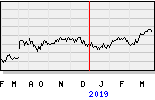
The next round of negotiations on a UN treaty to end plastic pollution takes place this week in Nairobi. It’s a critical stage of the process that should begin to focus on the detail, with talks centring around a zero draft of what will ultimately become the legally binding text.
Governments are meeting in Nairobi this week for the third round of negotiations on a UN treaty to end plastic pollution.
This is a critical part in the process as policymakers are expected to move from general discussion to detailed negotiations.
The need for a global treaty
In March 2022, the UN Environment Assembly adopted a historic resolution to develop a global plastics treaty.
An estimated 11 million tonnes of plastic enter the world’s oceans every year – according to the UN Environment Programme – making a treaty a once-in-a-generation opportunity to tackle the crisis in a globally coordinated way.
It’s a chance for UN member states to create a legally binding policy framework that will give entities across the plastics value chain the regulatory certainty to accelerate and scale the systems change needed.
The zero draft
Since the decision to begin negotiations in March 2022, the Intergovernmental Negotiating Committee (INC) has met every six months. Unilever has been attending as part of the Business Coalition for a Global Plastics Treaty, advocating for a high-ambition treaty.
At the first round (known as INC-1), we were encouraged by calls from governments for global rules and obligations to be set for all countries, across the full lifecycle of plastic. At the most recent meeting (INC-2), there was agreement to create the first iteration of the treaty’s legal text – known as the ‘zero draft’ – and this will form the basis for these latest talks (INC-3) in Nairobi.
The zero draft (PDF 720.72 KB) contains numerous options for treaty provisions that have potential to support progress on all three of the outcomes that the Business Coalition for a Global Plastics Treaty calls for in its vision statement: reduction, circulation and prevention.
The Business Coalition for a Global Plastics Treaty
The Business Coalition for a Global Plastics Treaty was convened by the Ellen MacArthur Foundation and the World Wildlife Fund to bring together businesses, NGOs and other organisations across the plastics value chain to support the development of an ambitious and effective treaty. Its vision is a circular economy in which plastic never becomes waste or pollution, and the value of products and materials is retained in the economy. Unilever is a member along with more than 150 other organisations.
As Jolanda de Rooij, our Senior Global Sustainability Manager and Business Coalition representative, explains: “The INC meeting in Nairobi is an exciting but critical next step in the treaty process when UN member states may shift from negotiating the macro procedural matters to the more micro details of actual treaty text.
“As part of the Business Coalition, we look forward to working with government negotiators and sharing our collective experience to inform the development of an ambitious treaty.”
The INC process aims to complete negotiations by the end of 2024, to be adopted in 2025.
The Business Coalition for a Global Plastics Treaty has published a comprehensive assessment of the zero draft ahead of INC-3. You can read it here.
What the treaty should achieve and how
We believe a treaty should achieve the reduction of plastic production and use through a circular economy approach.
It must also provide mechanisms for national governments to support a just transition for all people involved in the value chain. This includes recognising the crucial role played by waste pickers and workers in the informal waste and recycling sector.
We believe the treaty can help end plastic pollution if UN member states set legally binding global targets, rules and obligations for all actors, and harmonise regulatory standards and policies across markets. This includes establishing well-designed extended producer responsibility (EPR) schemes and coupling design for recycling requirements with policies that unlock infrastructure investment and help scale collection, sorting, reuse and recycling systems.
30-foot sculpture ‘Turn off the plastic tap’ by Canadian artist Benjamin von Wong, made with plastic waste from Kibera slums.
A 30-foot sculpture titled ‘Turn off the plastic tap’ by Canadian artist Benjamin Von Wong, made with plastic waste from Nairobi’s Kibera slum.
Our hopes for the Nairobi talks
We’re hoping to see progress on a number of specifics at INC-3, including:
Discussions on provisions to ensure harmonised regulations over the whole lifecycle of plastics.
Agreement for additional intersessional work on critical policy areas such as product design, problematic and avoidable products (including packaging), extended producer responsibility (EPR) and reuse options and new delivery models.
Advanced discussions on the development of technical annexes to the treaty.
With just over a year of negotiating time left, the INC must ensure that key provisions in the treaty become fully operational from day one while allowing the expansion and updating of the annexes over time.
“Nairobi can really accelerate these talks,” says Jolanda. “If member states can get into the detail, then there is every chance things will stay on track for a final text at the end of next year.”
You can follow updates from INC-3 and the Coalition’s activity via Twitter and LinkedIn.
see & read more on
https://www.unilever.com/news/news-search/2023/zero-draft-negotiations-un-plastics-treaty-process-enters-pivotal-stage/?utm_source=SignUp&utm_medium=Email&utm_campaign=NewsSignUp
